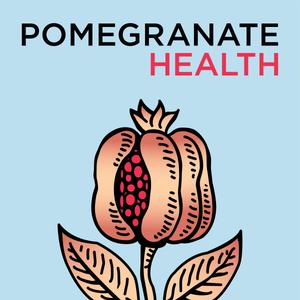
Pomegranate Health
the Royal Australasian College of Physicians
Pomegranate Health is an award-winning podcast about the culture of medicine, from the Royal Australasian College of Physicians. We ask how doctors make difficult clinical and ethical decisions, how doctor-patient communication can be improved, and how can health delivery be made more equitable. Find out more at the website of www.racp.edu.au/podcastGet in touch via [email protected]
- 32 minutes 10 seconds[Case Report] 68yo with cardiometabolic risk factors and transient monocular vision loss
Pomegranate [Case Report] is a Q&A style podcast developed by trainees, for trainees. In our debut episode, we hear about w a who man presented to the emergency department reporting sudden onset vision loss in his right eye lasting several hours. He was 68 year old with a history of type 2 diabetes mellitus. Three differential diagnoses being considered were optic neuropathy, vitreoretinal disease, or corneal oedema following from potential uveitis. In this podcast consultant ophthalmologist, Dr Sumu Simon, walks through an approach to this presentation and an exploratory therapy.
Guests
Dr Sumu Simon FRANZCO (Queen Elizabeth Hospital; Royal Adelaide Hospital)
Dr Brandon Stretton (Royal Adelaide Hospital)
Dr Stephen Bacchi (Lyell McEwin Hospital)
Production
Produced by Mic Cavazzini DPhil. Music licenced from Epidemic Sound includes ‘Rockin’ for Decades’ by Blue Texas and ‘Brighton Breakdown’ by BDBs. Image created and copyrighted by RACP. Editorial feedback kindly provided by RACP physicians Aidan Tan and Fionnuala Fagan.Please visit the Pomegranate Health web page for a transcript and supporting references. Login to MyCPD to record listening and reading as a prefilled learning activity.
Key Reference and learning points (spoiler alert)
The Role of Tocilizumab in Glucocorticoid Resistant Giant Cell Arteritis: A Case Series and Literature Review [J Neuroophthalmol. 2023;43(1)]
1. This case underscores the critical nature of timely diagnosis and aggressive treatment in conditions like giant cell arteritis (GCA), where delayed treatment can lead to irreversible complications such as vision loss. Thorough history taking and clinical acumen are still key elements in establishing a diagnosis of GCA.
2. The patient's initial response and subsequent decline in vision illustrate the need for ongoing monitoring and readiness to adapt the treatment approach. It also shows the necessity of close monitoring of inflammatory markers and clinical symptoms.
3. Amaurosis fugax warrants urgent referral to an ophthalmologist.
4. High index of suspicion for GCA and prompt referral of GCA suspects will ensure best outcome for patients.
5. Progressive visual loss and elevated inflammatory markers should alert the clinician to glucocorticoid-resistant GCA.
6. The effectiveness of tocilizumab in this case highlights its role as a valuable treatment option for refractory GCA, especially when traditional therapies are not sufficiently effective. Targeted biologic agents may open up new treatment approaches in the future particularly in patients with progressive visual loss despite administration of intravenous methylprednisolone.
7. Managing complex cases like GCA often requires a collaborative approach involving rheumatologists, ophthalmologists, and other specialists to ensure comprehensive care and optimal outcomes.
8. There is often value in case reports to start the evidence cascade that is required to bring new, life altering treatments to the forefront.15 May 2024, 12:00 am - 40 minutes 44 seconds[Journal Club] Baricitinib immune therapy for new onset type 1 diabetes
Type 1 diabetes has a very high treatment burden in terms of direct costs, inconvenience and lost productivity for patients and their carers. Further, all the glucose checking, hormone replacement and consults don’t abolish the vascular complications associated with poor glycaemic control. Only in the last few years has it been possible to pharmacologically alter the course of type 1 diabetes and other auto-immune diseases without generating intolerable side effects.
Teplizumab is an antibody to CD3 which was presented to the world in 2019 as delaying the onset of type 1 diabetes in high-risk individuals thanks to its protective effect on pancreatic β-cells. It has not yet been registered by the Therapeutic Goods Administration but another immunomodulatory drug called baricitinib has. Baricitinib is an inhibitor of Janus Kinases indicated for the for the treatment of rheumatoid arthritis, alopecia areata, atopic dermatitis and even COVID-19.
In December of last year the results of a Phase 2 trial in patients with new-onset type 1 diabetes were published in the New England Journal of Medicine. After almost a year of taking the oral therapy, patients were found to have better glycaemic control and evoked C-peptide levels than those taking placebo, indicating a preserved ability to secrete insulin. In today’s episode, Pomegranate’s in-house endocrinologist interviews two of the study authors.
Key Reference
Baricitinib and β-Cell Function in Patients with New-Onset Type 1 Diabetes [NEJM. 2023. 7;389(23)]Guests
Prof Jenny Couper FRACP FAHMS (Women's and Children's Hospital, University of Adelaide)
Dr Michelle So FRACP (Royal Melbourne Hospital, Northern Hospital)
Guest Host
Dr Rahul Barmanray FRACP (Royal Melbourne Hospital)Production
Produced by Mic Cavazzini DPhil. Music licenced from Epidemic Sound includes ‘Things to Sort out’ and ‘Quiet Waters’ by Walt Adams and ‘The Appalachian Trail’ by Hunter Quinn. Music courtesy of FreeMusic Archive includes ‘I am a Man Who Will Fight For Your Honor’ by Chris Zabriskie. Image produced and copyrighted by RACP.Editorial feedback kindly provided by RACP physicians Amy Hughes, Stephen Bacchi, Fionnuala Fagan and Aidan Tan.
Please visit the Pomegranate Health web page for a transcript and supporting references.Login to MyCPD to record listening and reading as a prefilled learning activity. Subscribe to new episode email alerts or search for ‘Pomegranate Health’ in Apple Podcasts, Spotify,Castbox or any podcasting app.
11 April 2024, 5:00 am - 30 minutes 50 secondsEp106: The whiskey fix and the apple of Granada
Today’s guests are the hosts of This Medical Life, a wonderful podcast that delves into the archives of medical history. Dr Travis Brown describes the period after World War I when the Spanish Flu was killing tens of millions around the world. In the USA, whiskey was thought to be a powerful prophylactic but distribution was not an easy thing. Later in the episode (22min) is the equally unlikely tale of how the pomegranate made its way from ancient myth onto this podcast by way of Henry VIII and some mystical symbolism.
Guests
Dr Travis Brown MBBS, FRCPA (ClinPath Pathology)
Steve Davis MBA FAMI CPM (Talked About Marketing)
Production
Produced by Mic Cavazzini DPhil. Music courtesy of FreeMusic Archive includes ‘Mendo Mulcher’ by Polyrhytmiques, ‘Bach’s March fur die Arche’ by The United States Army old Fife and Drum Corps and ‘Notre Dame’ by Jahzzar. Music licenced from Epidemic Sound includes ‘Salat Alsabah’ by Feras Charestan and ‘Savannah Nights 1’ by Martin Gauffin. Image courtesy of Wikimedia Commons. Recording of Allegri’s Miserere from Trinity College under Creative Commons licence from archive.org.Editorial feedback kindly provided by RACP physicians Chris Leung, Aidan Tan, David Arroyo, Ronaldo Piovezan, Rahul Barmanray and Ian Woolley.
Please visit the Pomegranate Health web page for a transcript and supporting references. Login to MyCPD to record listening and reading as a prefilled learning activity. Subscribe to new episode email alerts or search for ‘Pomegranate Health’ in Apple Podcasts, Spotify,Castbox or any podcasting app.
25 March 2024, 5:00 am - 49 minutes 7 secondsEp105: When parents and paediatrics clash
Last November an NHS Hospital Trust in Nottingham sought permission from the UK High Court to withdraw life support from a seven-month old girl called Indi Gregory. The devastated parents did not want to give up on her although they were advised there was no hope of treatment for her profound developmental disability. The family and the medical teams returned to court two more times, right up to the day that Indi was to be extubated.
Conflicts over care have always existed but their frequency has increased as medicinal advances present more options for intervention even in the sickest patients. Added to that, the online media environment allows advocacy campaigns to grow until they spill onto the streets outside hospitals and courtrooms.
This heightened tension causes moral injury both to parents and healthcare staff looking after child patients. The Medical Mediation Foundation has developed a conflict management framework to help avoid or de-escalate such disputes and keep attention focused on the best interests of the patient. In this podcast we hear from the director of the foundation, as well as three staff from the Starship Hospital, Auckland who have undertaken this training.
Guests
Sarah Barclay (Director, the Medical Mediation Foundation)
Dr Louise Webster MBChB RANZCP FRACP (Paediatric Consult Liaison Team, Starship Hospital)
Dr Fiona Miles FRACP FFICANZCA (Paediatric Intensivist, Starship Hospital)
Fiona McIver (nurse specialist, Starship Hospital)Production
Produced by Mic Cavazzini DPhil. Recording assistance in Auckland from Dinesh Kumar. Music courtesy of FreeMusic Archive includes ‘December’ by Kai Engel. Music licenced from Epidemic Sound includes ‘Ikigai’ by Twelwe and ‘Pulse Voyage by Chill Cole. Image by Photodisc licenced from Getty Images.
Editorial feedback kindly provided by RACP physicians Michael Herd, Rosalynn Pszczola, Rachel Murdoch, Sasha Taylor, Zac Fuller, Rahul Barmanray, David Arroyo, Rachel Bowden, Chris Leung, Fionnuala Fagan, Thazin Thazin and Aidan Tan.Please visit the Pomegranate Health web page for a transcript and supporting references. Login to MyCPD to record listening and reading as a prefilled learning activity. Subscribe to new episode email alerts or search for ‘Pomegranate Health’ in Apple Podcasts, Spotify,Castbox or any podcasting app.
26 February 2024, 11:00 pm - 25 minutes 44 seconds[IMJ On-Air] Is the jury still out on omega-3 supplementation?
The theory that certain fatty acids are essential to the diet and associated with reduced cardiovascular risk has been controversial since it was floated in the 1950s.
In 1971 Danish researchers published the results from a cross-sectional study of Inuit people living on the west coast of Greenland. They ate a fish-based diet rich in polyunsaturated fatty acids known as omega-3s, which were found in their tissues along with much lower levels of pre-β-lipoprotein and plasma-triglycerides when compared to controls.
That association between a fishy diet and lowered cardiovascular risk has been replicated in multiple population studies since then and there are several ways omega-3 fatty acids could mediate the effect. They have anti-inflammatory and antithrombotic properties, lower circulating triglyceride concentrations and keep vessels impermeable to plaque forming lipoproteins.For many years now clinical guidelines like those of the American Heart Association and the National Heart Foundation of Australia have explicitly encouraged dietary intake of omega-3s fatty acids for those at high cardiovascular risk. But such recommendations come despite considerable inconsistency in the outcomes from intervention studies on omega-3 supplementation over the past 25 years.
From several large RCTs there have been just as many negative or neutral associations as there have been positive ones. Professor Christian Hamilton-Craig has published a viewpoint review in the December edition of the Internal Medicine Journal attempting to explain these inconsistencies.
Guests
Dr Paul Bridgman MB ChB MD FRACP FCSANZ FASE (Christchurch Hospital; St George Hospital; University of Otago)
Prof Christian Hamilton-Craig MBBS PhD FRACP FCSANZ FSCCT FSCMR FACC (Director, Noosa Hearts Cardiology; Noosa Hospital; Griffith University; University of Queensland)
Declarations of interest: nil
Key Reference· Christian Hamilton-Craig, Karam Kostner, David Colquhoun, Stephen J Nicholls. Omega-3 fatty acids and cardiovascular prevention: is the jury still out? IMJ. 2023 Dec;53(12):2330-2335
Production
Produced by Mic Cavazzini DPhil. Music licenced from Epidemic Sound includes ‘Niagara’ by Chris Shards and ‘Hollow Head’ by Kenzo Almond.Please visit the Pomegranate Health web page for a transcript and supporting references.Login to MyCPD to record listening and reading as a prefilled learning activity. Subscribe to new episode email alerts or search for ‘Pomegranate Health’ in Apple Podcasts, Spotify,Castbox or any podcasting app.
30 January 2024, 11:00 pm - 39 minutes 32 seconds[IMJ On-Air] HepatoCare: a model for palliative and supportive care in advanced cirrhosis
Median survival for patients diagnosed with advanced cirrhosis is around 2 years and quality of life is poor. Fewer than a quarter of such patients receive referrals to palliative care and advanced care plans are also rare. Existing research from abroad suggests that hepatology staff aren’t familiar with referral criteria and assume that palliative services become involved only at the very end of life.
To try and reduce barriers to referral, clinicians at Royal Brisbane Hospital developed a model called Hepatocare. They adapted a palliative care referral algorithm to include cirrhosis specific markers and continuity of care between the teams was provided by a clinical nurse consultant. The model was piloted model in 30 consecutive patients to the liver clinic, and its impact was assessed on rate of referrals, incidence of unplanned admissions, length of patient stay and rates of polypharmacy.
Guests
Professor James O’Beirne FRCP FRACP (Sunshine Coast Hospital and Health Service; University of the Sunshine Coast)
Dr Richard Skoien MBBS FRACP (Royal Brisbane and Women’s Hospital; University of Queensland)
Dr Alison Kearney FRACP MRCP (Royal Brisbane and Women’s Hospital; University of Queensland)
Olivia Cullen (Royal Brisbane and Women’s Hospital)Key Reference
- Alison Kearney, Neha Tiwari, Olivia Cullen, Amy Legg, Ismail Arbi, Carol Douglas, Barbara Leggett, Mary Fenech, Joanne Mina, Paris Hoey, Richard Skoien. Improving palliative and supportive care in advanced cirrhosis: the HepatoCare model of integrated collaborative care. Intern Medicine Journal. 2023 Nov;53(11):1963-1971
Production
Produced by Mic Cavazzini DPhil. Music licenced from Epidemic Sound includes ‘After the Freak Show’ by Luella Gren and ‘The Cold Shoulder’ by Kylie Dailey.Editorial feedback kindly provided by RACP physicians Aidan Tan and David Arroyo.
Please visit the Pomegranate Health web page for a transcript and supporting references. Login to MyCPD to record listening and reading as a prefilled learning activity. Subscribe to new episode email alerts or search for ‘Pomegranate Health’ in Apple Podcasts, Spotify, Castbox or any podcasting app.
11 December 2023, 5:00 am - 54 minutes 45 secondsEp102: Staying on script with semaglutide
Semaglutide, branded as Ozempic or Wegovy, is an analogue of glucagon-like peptide 1 which has glucose-dependent effects on insulin secretion. In this episode we discuss how semaglutide performs as an antihyperglycaemic agent compared to previous GLP-1 analogues and the soon-to-be launched tirzepatide. This dual agonist also binds receptors to glucose-dependent insulinotropic polypeptide, GIP.
GLP-1 and GIP are incretin hormones, secreted after food intake and involved in regulating gastric motility and appetite. The analogue therapies have resulted in weight loss of 10 to 20 percent in trials on patients with obesity or other weight-related comorbidities. For various reasons, however, they remain unsubsidised by the Pharmaceutical Benefits Scheme. This hasn’t stopped social media influencers driving up off-label demand from the wider public, creating a problem for regulators and the diabetic patients most in need.
Guests
Professor Chris Rayner MBBS PhD FRACP (Gwendolyn Michell Professor, Adelaide Medical School; Consultant Gastroenterologist, Royal Adelaide Hospital)
Professor Gary Wittert MBBch, MD, FRACP (Mortlock Professor, Adelaide Medical School; Senior Consultant Endocrinologist, Royal Adelaide Hospital)
Production
Produced by Mic Cavazzini DPhil. Music courtesy of Free Music Archive includes ‘Mister S’ by Tortue Super Sonic. Music licenced from Epidemic Sound includes ‘Multicolor’ and ‘Flower Fountain’ by Chill Cole, ‘Blacklight’ by John B Lund, and ‘Habitual’ by Ava Low. Image by Ketut Subiyanto courtesy of Pexels.Editorial feedback kindly provided by RACP physicians Stephen Bacchi, Aidan Tan, David Arroyo, Joseph Lee, Jia-Wen Chong, Li-Zsa Tan, Fionnuala Fagan, Stella Sarlos and Marion Leighton.
Please visit the Pomegranate Health web page for a transcript and supporting references. Login to MyCPD to record listening and reading as a prefilled learning activity. Subscribe to new episode email alerts or search for ‘Pomegranate Health’ in Apple Podcasts, Spotify, Castbox or any podcasting app.
13 November 2023, 5:00 am - 56 minutes 26 secondsEp101: Setting the standard for workforce wellbeing
We’ve known for a decade that about 50 percent of doctors meet the criteria for burnout, and the figure is up to 70 percent among trainees. But organisations have been left to come up with their own solutions to this, the result being that many simply offer band aid solutions rather than systemic ones. Unforgiving work conditions pose a problem for both recruitment and retention of staff to the health workforce. The New Zealand Health Department, Te Whatu Ora, forecasts that within ten years supply of doctors, pharmacists and nurses will fall short of demand by 14 to 18 percent. In response they have establish they have established a national Health Charter that sets the workplace standards to keep staff safe and engaged.
Australia is one step behind, but in early September there was a leadership conference aimed at developing a similar wellbeing strategy nationally. It was envisaged that there would be Chief Wellness Officers at every major health service, reporting validated metrics about their workforce to a national taskforce. And as explained in the keynote presentation at the conference, at the organisational level there are different responses appropriate to the three main domains that influence staff wellbeing; these being personal resilience, professional culture and basic administrative efficiency. This podcast captures reflections from wellbeing champions at several different Australasian health jurisdictions.
Guests
Dr George Eskander MB DCH DRANZCOG FRACGP (Executive Area Director Clinical Services; North Metropolitan Health Service & Sir Charles Gairdner Osborne Park Hospital Care Group)
Dr Bethan Richards MB FRACP MMed MSportsMed (Head of Rheumatology, Chief Medical Wellness Officer, Royal Prince Alfred Hospital; Senior Clinical Lecturer, The University of Sydney)
Dr Joanna Sinclair MB FANZCA (Senior Medical Officer Wellbeing Lead, Counties Manukau Health) Victoria Hirst (Chief of Knowledge Networks, General Manager of Health Roundtable, Beamtree)
Associate Professor Anne Powell BPharm, MBBS, FRACP (Program Director of Physician Education, Alfred Health in Melbourne; Monash University)
Professor Jennifer Martin MBChB MA FRACP PhD GAICD (Chair of Clinical Pharmacology, University of Newcastle; John Hunter Hospital)
Production
Produced by Mic Cavazzini DPhil. Music licenced from Epidemic Sound includes ‘Kryptonite’ by Blue Steel and ‘Thyone’ by Ben Elson. Music courtesy of Free Music Archive includes ‘A Path Unwinding’ and ‘The Zepplin’ by Blue Dot Sessions and ‘Summer Days’ by Kai Engel. Image by sturti licenced from Getty Images.Editorial feedback kindly provided by physicians Aidan Tan and David Arroyo. Thanks also to Sarah Dalton and Fiona Fitzgerald for their coordination support.
Please visit the Pomegranate Health web page for a transcript and supporting references. Login to MyCPD to record listening and reading as a prefilled learning activity. Subscribe to new episode email alerts or search for ‘Pomegranate Health’ in26 September 2023, 4:00 am - 36 minutes 44 secondsEp100: Conversations with ChatGPT
This is the final episode in a five-part series about artificial intelligence in medicine. We start by weighing up the costs and benefits of automation in a health system that’s increasingly pushed beyond capacity. One of the biggest time sinks for health practitioners is filling out and searching through medical records. Some of this could be performed by natural language processors which are becoming more accurate thanks to deep learning.
The power of large language models has been demonstrated by the meteoritic uptake of ChatGPT and doctors are among those who have used it to summarise literature or draft letters. But professional organisations have raised concerns around the accuracy and privacy of the model and there have also been spooky demonstrations of its capacity for common sense and theory of mind.
Guests
>Professor Brent Richards MBBS FRACP JJFICM (Gold Coast Hospital and Health Service; Director, IntelliHQ)
>Affiliate Associate Professor Paul Cooper PhD FAIDH CHIA AFHEA GAICD (Deakin University)
>Associate Professor Sandeep Reddy MBBS PhD IPFPH ECFMG CHIA FAcadTM FAIDH FCHSM SFHEA (Deakin University; Founder, MedAI)
Production
Produced by Mic Cavazzini DPhil. Music licenced from Epidemic Sound includes ‘Kryptonite’ by Blue Steel and ‘Thyone’ by Ben Elson. Music courtesy of Free Music Archive includes ‘Headway’ by Kai Engel, ‘Gramaphone’ by Jahzarr and ‘Numbers’ by Krowne. Image by VM licenced from Getty Images. Computerised voice from Online Tone GeneratorEditorial feedback kindly provided by physicians David Arroyo, Stephen Bacchi, Aidan Tan, Ronaldo Piovezan and Rahul Barmanray and RACP staff Natasa Lazarevic PhD.
Please visit the Pomegranate Health web page for a transcript and supporting references. Login to MyCPD to record listening and reading as a prefilled learning activity. Subscribe to new episode email alerts or search for ‘Pomegranate Health’ in Apple Podcasts, Spotify, Castbox or any podcasting app.
16 August 2023, 5:00 am - 38 minutes 43 secondsEp99: When AI goes wrong
This is the fourth part in a series on artificial intelligence in medicine and we try and unpick the causes and consequences of adverse events resulting from this technology. Our guest David Lyell is a research fellow at the Australian Institute of Health Innovation (Macquarie University) who has published a first-of-its kind audit of adverse events reported to the US regulator, the Federal Drugs Administration. He breaks down those that were caused by errors in the machine learning algorithm, other aspects of a device or even user error.
We also discuss where these all fit in to the four stages of human information processing, and whether this can inform determinations about liability. Uncertainty around the medicolegal aspects of AI-assisted care is of the main reasons that practitioners report discomfort about the use of this technology. It's a question that hasn’t been well tested yet in the courts, though according to academic lawyer Rita Matulonyte, AI-enhanced devices don’t change the scope of care that has been expected of practitioners in the past.Guests
>Rita Matuolynte PhD (Macquarie Law School, Macquarie University; ARC Centre of Excellence for Automated Decision Making and Society; MQ Research Centre for Agency, Values and Ethics)
>David Lyell PhD (Australian Institute of Health Innovation, Macquarie University; owner Future Echoes Business Solutions)
Production
Produced by Mic Cavazzini DPhil. Music licenced from Epidemic Sound includes ‘Kryptonite’ by Blue Steel and ‘Illusory Motion’ by Gavin Luke. Music courtesy of Free Music Archive includes ‘Impulsing’ by Borrtex. Image by EMS-Forster-Productions licenced from Getty Images.Editorial feedback kindly provided by physicians David Arroyo, Stephen Bacchi, Aidan Tan, Ronaldo Piovezan and Rahul Barmanray and RACP staff Natasa Lazarevic PhD.
Key References
More than algorithms: an analysis of safety events involving ML-enabled medical devices reported to the FDA [Lyell, J Am Med Inform Assoc. 2023]
How machine learning is embedded to support clinician decision making: an analysis of FDA-approved medical devices [Lyell, BMJ Health Care Inform. 2021]
Should AI-enabled medical devices be explainable? [Matulonyte, Int J Law Inform Tech. 2022]Please visit the Pomegranate Health web page for a transcript and supporting references. Login to MyCPD to record listening and reading as a prefilled learning activity. Subscribe to new episode email alerts or search for ‘Pomegranate Health’ in Apple Podcasts, Spotify, Castbox or any podcasting app.
9 August 2023, 3:00 am - 43 minutes 46 seconds[IMJ On-Air] A tiger in the mallee: Victoria’s JEV cluster
On the 28th of January 2022 a 75-year-old man was admitted to the regional Albury Wodonga Health Service with a high fever and Parkinsonian symptoms. The patient spent over a week in intensive care, but brain scans did not reveal an obvious aetiology and assays for a range of pathogens came up negative.
When serology eventually revealed the presence of antibodies against Japanese encephalitis virus this became only the second ever locally-acquired case on Australia’s mainland. Even more startling was the fact that the previous one had been way back in 1998 in Cape York, far north Queensland.
The Victorian patient was the first what would become an outbreak of 43 symptomatic human cases that resulted in six deaths. The JE virus would be detected in all mainland states and retrospectively linked to another fatality in March 2021 from the Tiwi islands of the Northern Territory. In this podcast we hear about the confluence of factors that brought a classically tropical disease to the southern states. The story is told from the perspective of the treating clinicians, microbiology specialist and public health physician who started putting the puzzle together from four sentinel cases.
Key Reference- Samuel Thorburn, Deborah Friedman, John Burston, Paul M Kinsella, Genevieve E Martin, Deborah Williamson, Justin Jackson. Sentinel cluster of locally acquired Japanese encephalitis in southern Australia. Internal Medicine Journal. 2023;53(5):835-840
Guests
Adjunct Associate Professor Ian Woolley FRACP (Monash Infectious Diseases; Monash University)
Dr Justin Jackson FRACP (Albury Wodonga Health)
Dr Sam Thorburn (Austin Health)
Dr Paul Kinsella (Victorian Infectious Diseases Reference Laboratory, Peter Doherty Institute for Infection and Immunity)
Associate Professor Deborah Friedman FRACP (Victorian Department of Health; Deakin University)
Production
Produced by Mic Cavazzini DPhil. Music licenced from Epidemic Sound includes ‘Dusty Delta Day’ and ‘Hard Shoulder’ by Lennon Hutton. Editorial feedback kindly provided by Dr Aidan Tan.Please visit the Pomegranate Health web page for a transcript and supporting references. Login to MyCPD to record listening and reading as a prefilled learning activity. Subscribe to new episode email alerts or search for ‘Pomegranate Health’ in Apple Podcasts, Spotify,Castbox, or any podcasting app.
16 July 2023, 11:00 pm - More Episodes? Get the App
Your feedback is valuable to us. Should you encounter any bugs, glitches, lack of functionality or other problems, please email us on [email protected] or join Moon.FM Telegram Group where you can talk directly to the dev team who are happy to answer any queries.
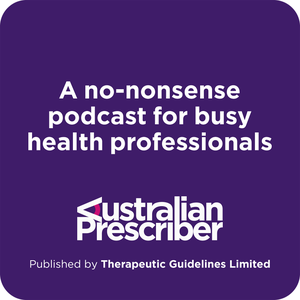 Australian Prescriber Podcast
Australian Prescriber Podcast
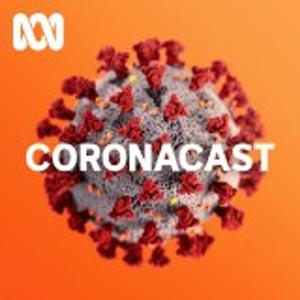 Coronacast
Coronacast
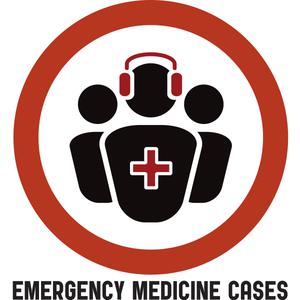 Emergency Medicine Cases
Emergency Medicine Cases
 All In The Mind
All In The Mind
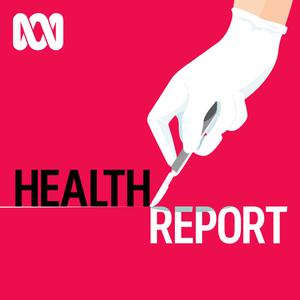 Health Report - Full program podcast
Health Report - Full program podcast
 Conversations
Conversations